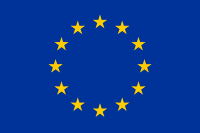Impact & Value Chains
Impact and Value Chains
The Value of Networks
The range of skills and competencies needed to run a CHIs is very varied, and contains both highly specialised functions in light of the specific collections as well as broader, more generic management skills. Moving towards digital operations adds a distinctive layer of complexity to all of this, as ICT technology, by its very nature, tries to look at what is common to a wide range of problems rather than seeking specific solutions.
This means it is not evident for individual CHIs to have every necessary competence on board to perform successful digital operations. In many cases, ICT services are outsourced. But then again someone within the institution needs sufficient interactional expertise to engage with outside experts to set up and manage innovation projects. Institutions need knowledge on digital curation, Linked Open data, on 3D, on digital file formats and preservation, on digitisation equipment, on social media interaction: it is a long list of shifting priorities, which makes it not easy to make sure one has at every moment the right people on board.
This is why for any CHI, active participation in carefully selected networks is key to a sound digital strategy. This starts with regional and/or national networks, where competencies can be pooled and expertise can be shared. A good example of this is the Dutch DEN network, which hosts the Network Digital Heritage and takes up the role of a cross-sectoral support organisation. It also provides training and resource sharing. NEMO is a network of museum associations and museums in Europe offering advocacy, training, expertise sharing and cooperation. In this network, museums can share their concerns and develop positions to influence decision making, as was e.g. done with the NEMO COVID survey.
The network of CHIs and experts in the field of digital cultural heritage linked through Europeana is certainly one of the key ones to look out for. The Europeana initiative consists of three pillars. The Europeana Foundation operates the Europeana platform providing resources, tools and services. The Europeana Network Association is open to professionals who share an interest in digital cultural heritage, and offers a wide range of activities under the umbrella of several communities of interest. The Europeana Aggregator’s Forum brings together the organisations who feed content into the Europeana platform. It has national/regional, domain and thematic aggregators, which share expertise and mutual support.
Read about the value chains in the digital single market
Test your knowledge by answering a short question:




